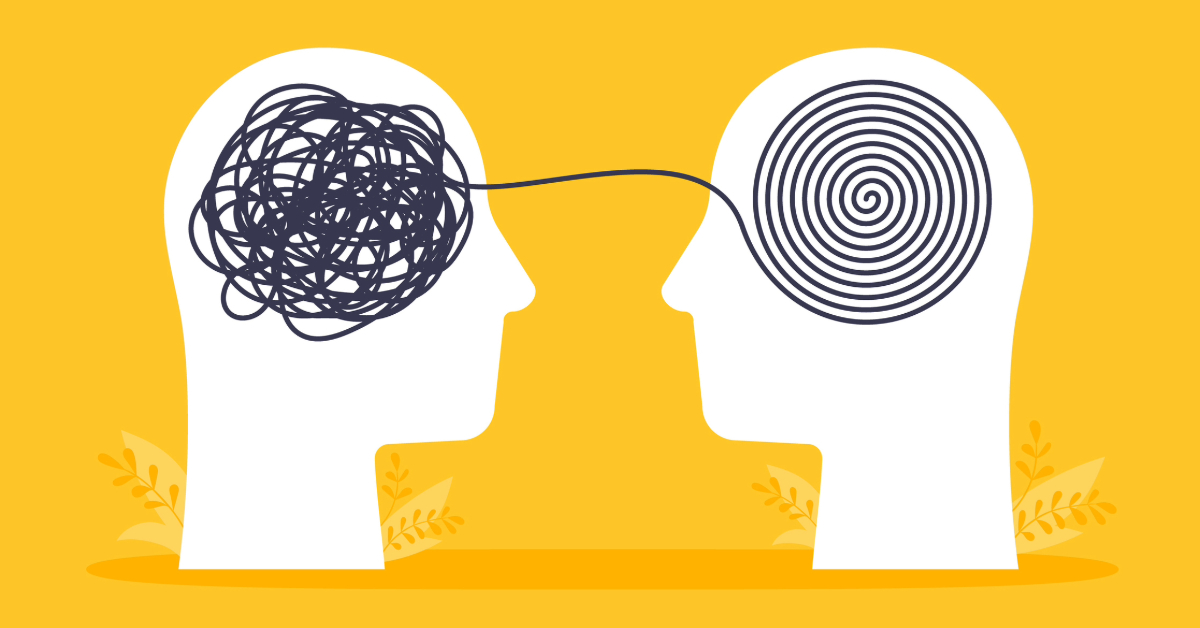Content Library Applications in Online Psychotherapy
Collaborating via shared documents is a vital component of any online meeting or video conference, especially when teaching, collaborating, or fostering interactivity. In this article, we will focus on the use cases and applications of content libraries in online psychotherapy and explore how mental health professionals can leverage them to treat their patients.
Table of contents
- What is a content library?
- Use cases of the content library for online psychotherapy
- Online psychotherapy platforms and content sharing
- Digital Samba for online psychotherapy
What is a content library?
A content library in video conferencing is a centralised repository where users can store, manage, and share various media and files during virtual meetings. This may include presentations, videos, documents, images, and other resources that can be easily accessed and shared in real time during a session.
This type of library enhances collaboration by allowing seamless integration of pre-uploaded content without the need to share screens or switch between applications. It is particularly useful for recurring meetings or training sessions where the same materials are frequently used. Content library tools help prepare and structure meetings or teaching sessions with essential materials, ensuring smooth execution.
Use cases of the content library for online psychotherapy
Online psychotherapy platforms can use content libraries in video calls for several key purposes, enhancing both the therapeutic process and the client experience. Some key examples include:
Educational resources
In online sessions, therapists can upload and share videos, worksheets, or presentations on coping mechanisms, mental health conditions, or therapeutic techniques. This gives patients the opportunity to understand their condition better and work on their issues at home using the tools and coping mechanisms provided.
We can identify two key areas of online psychotherapy that benefit from content libraries for education and guidance:
- Cognitive-behavioural therapy (CBT) might involve sharing materials on cognitive restructuring techniques. CBT is the form of psychotherapy which can profit most from sharing different types of documents because it is designed to help individuals recognise and alter destructive thinking patterns that negatively affect their emotions and behaviour. By blending cognitive and behavioural approaches, CBT addresses maladaptive thoughts, emotional responses, and behaviours, aiming to replace them with healthier patterns. Its primary focus is on identifying automatic negative thoughts, which can exacerbate emotional difficulties, such as anxiety and depression. These negative thoughts are then examined, challenged, and replaced with more balanced, realistic ones. The overall goal of CBT is to promote healthier thinking and emotional well-being.
- Psychoeducation resources can help clients understand their mental health conditions better. Psychoeducation is the process of providing individuals with knowledge and understanding about their mental health conditions. It helps patients and their families learn about the nature of their issues, including symptoms, treatment options, and coping strategies. The goal is to empower individuals by increasing their awareness and fostering better management of their condition. Psychoeducation also enhances treatment adherence, as it demystifies mental health issues and equips patients with tools for self-management. Ultimately, it promotes recovery and resilience by helping individuals understand their thoughts, emotions, and behaviours.
Interactive activities
Therapists can use content like mood trackers, behavioural exercises, or journaling prompts during the session and even store them in the content library so that they can easily be accessed as needed to guide the client through therapeutic exercises. These resources help clients reflect on their emotions, behaviours, and thought patterns in a structured way. By storing these activities in a content library, therapists can access and share them with clients during sessions to guide therapeutic exercises. This allows for a personalised and dynamic approach, where the therapist can select the most relevant tools based on the client's current needs. These activities encourage ongoing participation and self-reflection, promoting progress both during and between sessions.
Guided meditations or relaxation exercises
Therapists can store and share audio or video files of guided mindfulness, relaxation, or breathing exercises that can be played during sessions or assigned as "homework" for clients to use between sessions. These resources help therapists lead clients through mindfulness exercises, stress reduction techniques, or relaxation practices in real-time. Therapists can also assign these recordings as homework, enabling clients to practice independently between sessions. This approach supports mental health treatment by promoting relaxation, reducing anxiety, and fostering emotional regulation. Having these resources readily available in a content library ensures consistency and ease of use for both therapists and clients.
Personalised treatment plans
Clients can receive treatment plans in the form of documents or slides that outline their progress, next steps, and goals, which can be shared during the video call. Personalised treatment plans in online therapy involve storing and sharing documents that outline a client’s therapeutic goals, strategies, and progress. These plans help therapists track the client’s development and tailor treatment to individual needs, ensuring a more targeted and effective approach. During video sessions, these documents can be reviewed and adjusted in real-time, fostering collaboration between the therapist and client. Sharing these treatment plans with clients allows them to actively engage in their therapy by understanding the goals and steps involved. This also ensures transparency, promoting better adherence to treatment.
Therapy homework and assignments
Therapists can utilise content libraries to assign digital worksheets or therapeutic homework to clients, which can then be stored for future review. For instance, clients participating in cognitive behavioural therapy (CBT) may be given tasks that challenge cognitive distortions, encouraging them to apply therapeutic techniques outside of sessions. These assignments can be completed digitally, making it easier for both the client and therapist to track progress and adjust the treatment as needed. By using the content library, therapists ensure that these resources are easily accessible, organised, and personalised for each client’s needs. This approach fosters continuous engagement and accountability, supporting the client’s therapeutic journey.
Online psychotherapy platforms and content sharing
Nowadays, many platforms offer online psychotherapy but do not include content and document-sharing features within their video call applications. In our opinion, these platforms would benefit greatly from integrating video conferencing tools such as Digital Samba, which offers modern content library clouds.
By incorporating content libraries, telehealth providers could enhance their therapy sessions with educational resources and assignments, as well as share relaxation techniques or structured plans for long-term mental health care. With a focus on providing evidence-based mental health treatments, such platforms could use content libraries to share therapeutic worksheets and follow-up materials during sessions.
Digital Samba for online psychotherapy
In October, Digital Samba introduced a content library feature that enables participants to create folders, upload pictures and PDFs, rename, and delete files, keeping meetings and sessions organised. This allows psychotherapists to prepare materials in advance for smoother therapy execution and planning.
The API also allows developers to automate content library management, such as file uploads and folder creation, offering enhanced control. A "Content Library" option has been added to the "Create a New Room" and "Default Room Settings" sections. Additionally, participants can select a specific library for each room for tailored content management. Libraries can also be managed from the dashboard, enabling participants to create, organise, and prepare libraries before meetings.
As all the content library use case examples in psychotherapy show, they can provide therapists with a structured way to integrate multimedia into the therapeutic process, improving engagement and outcomes for their clients. Unleash the full potential of this exciting feature by integrating Digital Samba video conferencing API into your application or website and see how it can revolutionise your experience in doing online psychotherapy. Contact our sales team now for an individualised offer!
SOURCES:
- Cherry, K. (2 November 2023). What Is Cognitive Behavioral Therapy (CBT) and How Does It Work? It can help alleviate anxiety and depression symptoms. [Blog] Very Well Mind. Accessed on 21 October 2024
- Shore JH, Yellowlees P, Caudill R, Johnston B, Turvey C, Mishkind M, Krupinski E, Myers K, Shore P, Kaftarian E, Hilty D. Best Practices in Videoconferencing-Based Telemental Health April 2018. Telemed J E Health. 2018 Nov;24(11):827-832. doi: 10.1089/tmj.2018.0237. Epub 2018 Oct 24. PMID: 30358514.
- Fernández-Álvarez, J., Fernández-Álvarez H. (2021). Videoconferencing Psychotherapy During the Pandemic: Exceptional Times With Enduring Effects? Frontiers in Psychology. VOL. 12. DOI=10.3389/fpsyg.2021.589536. ISSN=1664-1078. Accessed on 21 October 2024
- Therapist Aid. Accesses on 21 October 2024
- Jansen, E. (28 September 2023). The Path to Self-Discovery: Effective Therapy Homework for Self-Expression. [Blog] Quenza. Accessed on 21 October 2024
Share this
You May Also Like
These Related Stories

Supporting Employee Mental Health Through Video Conferencing

Overcoming Zoom Fatigue in Virtual Therapy Sessions



